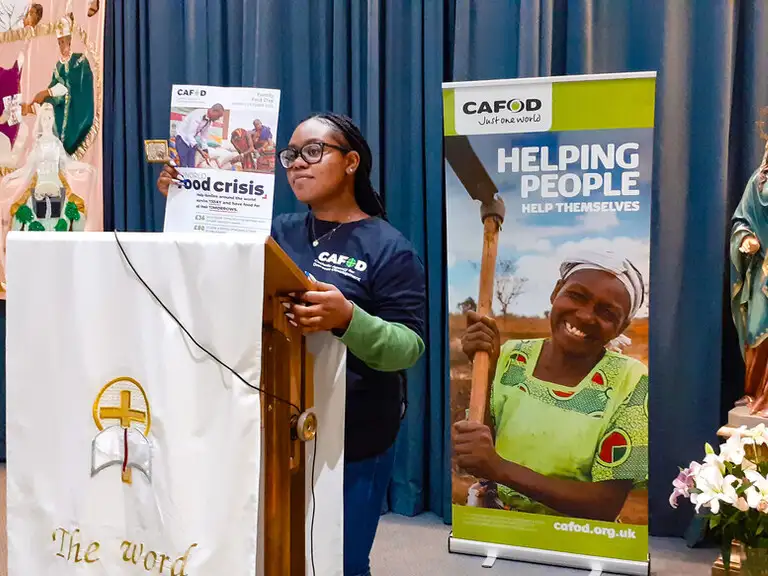Catholic Social Teaching
Read more about some of the CST principles which inspire CAFOD's work.


Volunteer Roxinne gives a short talk for CAFOD in a parish in the Diocese of Northampton.
“There was a rich man who used to dress in purple and fine linen and feast magnificently every day. And at his gate there lay a poor man called Lazarus.”
This is a familiar story. Jesus told his parables to help people recognise themselves and their actions, and reflect how they could live differently.
We might identify with Lazarus – feeling excluded, longing for someone to recognise our humanity as we struggle to get by.
Or do we perhaps see something of ourselves in the rich man – the person who, because they have enough, can close their eyes to the problems at their own front door?
Or again, we might be like the rich man’s brothers, who ignore the messages from the prophets, and won’t listen even should someone rise from the dead to tell them to change their ways.
Whichever it is, there is a lesson here for us all.
We are called to listen to the messages we have been sent, to the people who have opened God’s word to us, or demonstrated it through their actions. We are called to listen to Christ, who rose from the dead, that we might believe.
We are called to take action, to acknowledge the problems that lie at our gate and care for and support one another through life.
And we must never forget that God has a special love for those who are poor or excluded in our society. God never abandons us and God will comfort us in our times of need.
Merciful God, work through us so that we can no longer ignore the problems facing our world and our most vulnerable brothers and sisters. Comfort us when we face our own times of trouble and lead us to new life with you. Amen.
Find out more about God’s preferential option for the poor as well as other principles found in Catholic Social Teaching (CST).
Read more about some of the CST principles which inspire CAFOD's work.